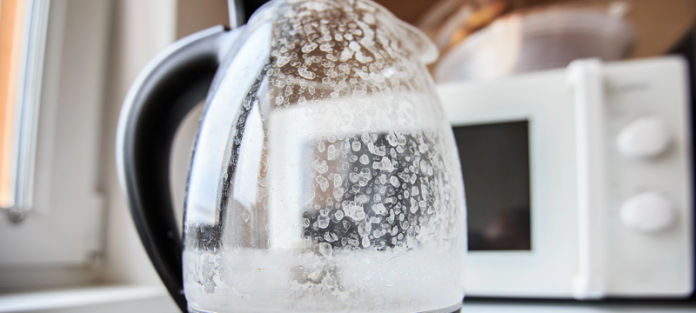Amidst the tumult of our daily routines, domestic contrivances such as refrigerators, washing machines, and microwaves silently assume the role of uncelebrated champions, streamlining our domestic tasks. However, these reliable mechanisms occasionally encounter complications.
When faced with a malfunctioning apparatus, the query surfaces, repairing your appliances for savings and sustainability. This composition delves into the concept of appliance repairing as not only a means to curtail expenditures but also as an avenue to champion the cause of energy preservation.
Understanding Electricity Costs
Let’s discuss those monthly bills. Were you aware that nearly 36% of your electricity expenses stem from appliances like dishwashers, washing machines, dryers, fridges, and kitchen gadgets? That’s a significant portion of your funds dedicated to keeping these machines operational.
Now, why is this important? Well, especially when finances are tight, being aware of our energy consumption can result in substantial savings. A helpful way to gauge an appliance’s energy usage is by checking its energy efficiency labels.
These labels are graded from A to G, with A being the most efficient and G being the least. This information becomes crucial in making informed decisions about energy use and considering options like appliance repair to maximize savings.
Kitchen Tips
How can you cut down on those electricity bills? Let’s start in the heart of many homes, “the kitchen”. When it comes to stovetops, electric ones are better than gas cookers. If you want to go a bit fancier, induction hobs are champs at saving energy. Microwaves are also good because they focus on heating, using less energy than ovens, and heat everything.
Talking about ovens, check if they have good insulation. Ovens with double or triple-glazed doors cook faster, and the heat stays inside better. Dishwashers can be money-eaters, but you can tame them by looking for water-saving features and using the ‘eco’ mode. And when you’re thinking about getting a new fridge or freezer, go for a smaller one, they usually use less energy.
Kettles and More Tips
Even your simple kettle can help you save energy. Look for the ‘eco’ label, it means it only uses the energy needed to boil the water you want, not a fixed amount for any amount of water. Also, think about the size of your appliances, bigger doesn’t always mean better. It’s like Goldilocks, not too big, not too small, just right.
Now, let’s go to the laundry room. Make sure your washing machine is the right size for your needs. If you live alone, a big machine might be too much. The same goes for dryers, smaller, more energy-efficient ones are better.
Bathroom Tips: Saving Water and Energy
Surprisingly, the bathroom is a place where you can make energy-saving choices too. High-efficiency toilets, also called eco-friendly toilets, are great for saving water. Since these don’t have energy labels, it’s important to compare their specifications. Toilets use a lot of water, about a third of all the water in a house.
The fittings in your bathroom, like taps, can also use a lot of water. Older taps might use up to 15 liters of water per minute, while newer ones only use about 2 liters. Switching to low-flow showerheads and taps is an easy change that saves a lot of water.
Also, insulating hot water pipes is a simple but effective way to keep water hot for a longer time, meaning you don’t have to reheat it and use more energy.
Bright Ideas for Savings
Now, let’s talk about electricity instead of water. The kind of lights you use can affect your bills. Old incandescent lights are not efficient. Compact fluorescent lights are better, but the real winners are LEDs. They last longer, shine brighter, and save you money. Lighting uses about 11% of the electricity in an average house in the UK, so changing to LEDs can save you a lot.
Efficiency Matters:
Now, let’s talk about heating, which can use up half of your home’s energy during cold months. It’s smart to invest in an efficient heating system. You might want to get advice from professionals for a personalized heating solution, like air-source heat pumps or geothermal heat pumps. The idea here is that spending money on efficiency now can save you a lot in the long run.
Tips for Everyday Savings
But what about the appliances you already have? Don’t worry, there are everyday tips to get the most out of them. Don’t run your washing machine, dryer, or dishwasher with just a half load – it’s a waste of water and electricity. Exercise patience until your laundry load attains maximum capacity.
When engaged in the laundry ritual, adjusting the thermostat downward isn’t solely a measure to conserve energy, it also prolongs the lifespan of your garments. The European Union advocates for laundering clothes at 30 degrees due to its inherent advantages. Opting to air-dry your clothing may appear antiquated, yet it surpasses the efficiency of employing a dryer, concurrently economizing energy.
Guidance for Refrigeration
Bestowed with the uncelebrated status of kitchen champions, your refrigerator and freezer demand their share of attention. A regimen of cleansing the coils at their rear and regular defrosting ensures their optimal functionality. A well-tended fridge or freezer operates with reduced energy consumption, averting wasteful energy dissipation.
Ingress into the Era of Intelligent Meters
For those inquisitive about their energy consumption and desiring command over it, contemplating the acquisition of a smart meter is prudent. These devices meticulously gauge your electricity usage, voltage parameters, and power factor, transmitting this data to your supplier. It constitutes a contemporary methodology to monitor your energy consumption and effectuate alterations when necessary.
Advocacy for Appliance Rectification
Now, let’s delve into the realm of remediation. Typically, household appliances endure for a span ranging from eight to 15 years. When they exhibit signs of malfunction, the instinctive reaction might be to procure a replacement. However, exercising patience and opting for repairs might unveil a more sagacious course of action.
Economical Rectifications
In the majority of instances, rectifying substantial appliances like refrigerators proves to be economically judicious. The financial outlay for repairs often amounts to a mere fraction of the cost of acquiring a pristine replacement.
The underlying principle is straightforward: if your appliance hasn’t traversed the threshold of considerable antiquity, opting for repair may emerge as the financially astute alternative.
Free or Low-Cost Diagnostics
To make things easier, many repair places offer free or low-cost checks to see what’s wrong with your appliance. Skilled technicians can quickly figure out the problem, tell you if it’s worth fixing, and give you a cost estimate. It’s like a checkup for your appliance, helping you decide without spending too much.
The Luxury of Home Appliance Repair
One cool thing about fixing appliances at home is that you don’t need to carry your heavy appliance to a faraway repair shop. Skilled technicians come to your home within 24 hours in most cases. It’s super convenient – your appliance gets fixed without you leaving your house.
Experts at Your Service
A big worry with repairs is making things worse. But pros know what they’re doing. They check the problem, figure it out accurately, and fix the appliance without changing parts that don’t need changing. And if they do need to change something, they know how to do it safely, so you don’t have to worry about getting hurt.
Saving Money with Repairs
The main point is this, money is hard to earn, and spending it smartly is important. While fixing things might cost some money, it’s still way less than buying a new appliance. By choosing to fix instead of replace, you save money and help the planet by not making more waste.
Conclusion
In the course of our busy lives, household appliances such as refrigerators, washing machines, and microwaves serve as silent heroes, streamlining our daily tasks. However, these reliable machines may encounter glitches over time.
When faced with the decision of whether to invest in a shiny new replacement or pursue a possibly wiser option, the guiding principle becomes clear, repairing your appliances for savings and sustainability. This article explores the inherent value of appliance repair, articulating its potential to not only conserve financial resources but also contribute to a more sustainable lifestyle.












